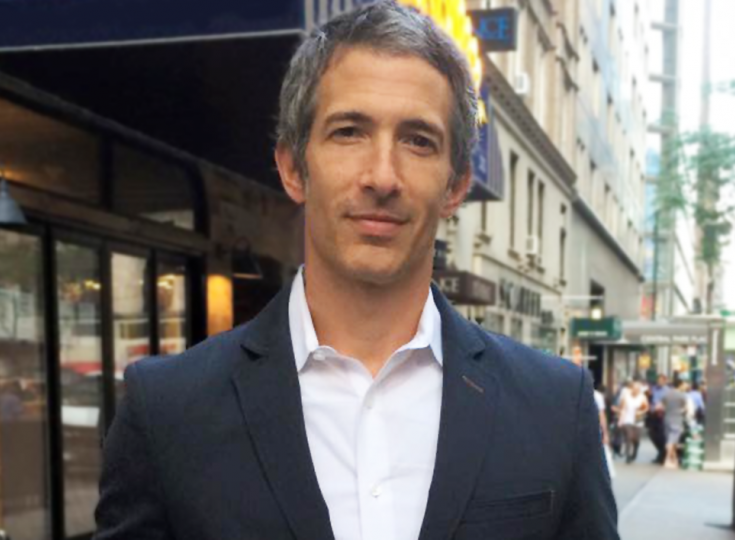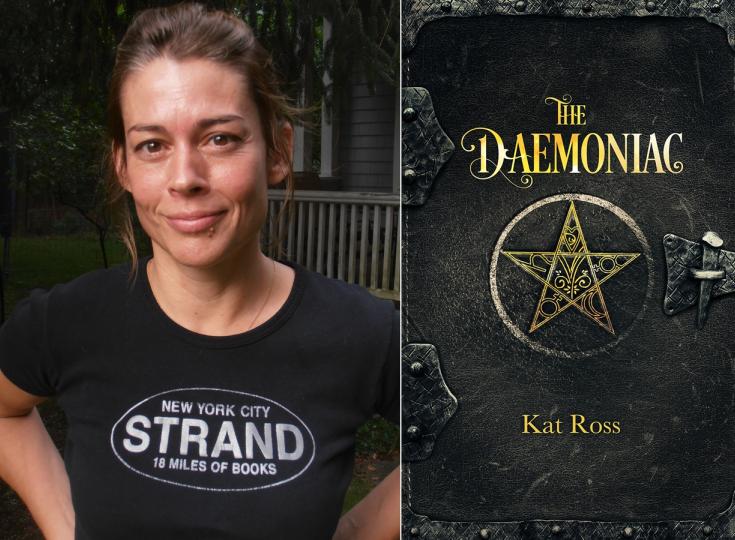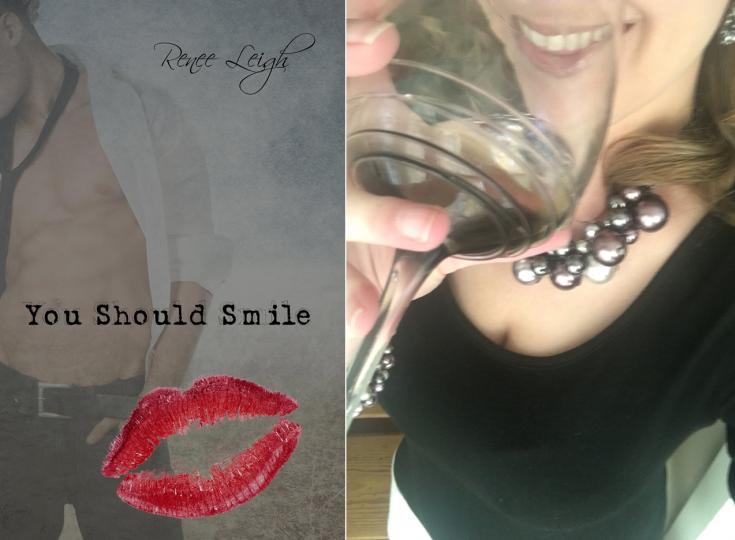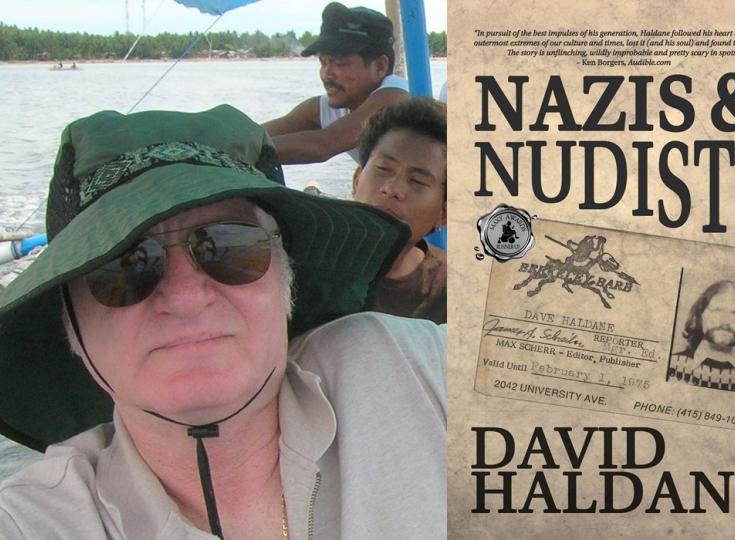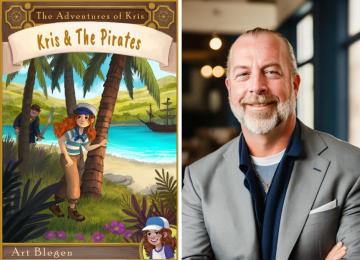Susana Aikin - Epic Historical Romance During Bolshevik Revolution
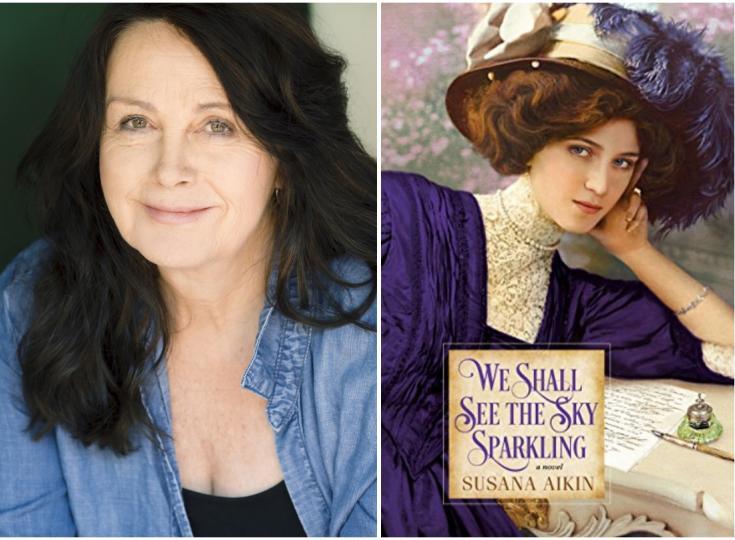
Born in Spain of an English father and a Spanish mother, Susana Aikin is a writer and a filmmaker who has lived and worked in New York City since 1982. She was educated in both England and Spain; studied law at the University of Madrid, and later Creative Writing at Manchester Metropolitan University, UK. In 1986, she started her own independent film production company, Starfish Productions, producing and directing documentary films that won her multiple awards, including an American Film Institute grant, a Rockefeller Fellowship, and an Emmy Award in 1997. She started writing fiction full time in 2010. As our Author of the Day, Aikin tells us all about her latest book, We Shall See the Sky Sparkling.
Please give us a short introduction to what We Shall See the Sky Sparkling is about.
We Shall See the Sky Sparkling is an Edwardian tale of a talented young actress disinherited by her father, who reaches great artistic heights on the London stage, only to be betrayed and whirled into a romance with a Russian count with whom she absconds to faraway Siberia.
What inspired you to write an epic historical romance?
There was an ancestress on my paternal grandmother’s side that had a shady legend in the family, and whom I grew up fascinated about. She left her family to work in the theater and ended up traveling all the way to Russia and across Siberia- that was my first draw to write the novel. I really wanted to explore the life of a Victorian young woman who had traveled into the Far East through Russia and Siberia. I had also grown up reading pre-revolutionary Russian authors like Tolstoy, Turgenev, Dostoyevski, Chekhov, etc, and have always been interested in 19th century and turn of the century Russia.
Tell us about Lilly. What makes her tick?
Lily is a Victorian ‘bad girl’ who follows her heart and pursues her passion for the theater, and has the courage to plunge into life and seek her path even if it leads to mistakes, and brings her to dangerous moments. Women like her are the pioneers of the modern women we so admire today.
You lived both in England and in Spain. How has this influenced your writing?
I grew up in a bilingual family and attended schools in both England and Spain. I think it was simultaneously an immensely enriching experience, as well as a complicated one at times. I also think it is the reason behind my taking so long to write in earnest because it took me decades to integrate both languages and cultures in my brain. I think it adds lots of texture and insight to my writing.
Besides writing, what other secret skills do you have?
I’m a meditator and a yoguini, a pro in holistic health, and I have an extensive background in filmmaking.
Class disparity is a central theme in this book. Why was this important to write about?
Class disparity is important in the novel because the freedom Lily acquires when she leaves home and gives up being a docile and obedient middle-class girl is, in part, the ability to navigate freely in society, and in the art and theater world, alongside all sorts of people from all sorts of backgrounds. Art and artists tend to break class boundaries because their work predicates on universal human tropes, and things like class, income, religion, race, etc. are relegated to circumstantial elements at best.
When working on a novel, how do you immerse yourself in the main characters' lives? Do you observe people in a certain culture, or do you try to walk in their shoes?
I find myself becoming completely and increasingly obsessed with my characters as I write, to the point where they feel real, and I can see them, the way they walk, sit, smile, scowl, etc.;I can even hear them talking or thinking aloud (all of this, of course, in my mind’s eye.) In short, I get to know them very well, and they seem to take on a life of their own. This means that many times it is they who dictate what they are going to do, or even what they refuse to do. Of course, I start off by doing a lot of research on the time period, and the type of persons they would be. I look at lots of pictures, films, I read books that I believe have similar characters, and then one day, they are there, perfectly formed in my mind. At that moment, I just put them in scenes and follow them around.
You write about some heavy themes—things that many of your readers have probably never experienced—yet it's very easy to identify with your characters. How do you make them so relatable?
I think most people go through very heavy things in their lives, the real stuff of high drama, although many times they don’t identify it as such, and just plow through as if it were another baffling stretch related to miserable times. In this sense, we are all unsung and undervalued heroes. But when we read stories where characters go through similar things, then we begin to recognize our own predicament, and are able to value it properly as part of our human experience. When, as a writer, you decide to humanize characters and give them enough depth, then readers identify with their experiences.
In this book you’re dealing with so many difficult themes – as a writer, do you feel a sense of responsibility? If so, how do you deal with this?
I do think writers have responsibility in what is being written and depicted in our work. After all, the community has given us a voice in the general culture, and needs us to speak candidly about things and use our shout outs to bring understanding as well as solace to readers. Of course, there is many ways of doing this—drama is one, but other genres, in particular comedy, can do this very effectively too.
If you had a book club, what would it be reading — and why?
There are so many amazing books out there… it is always difficult to choose. But a mixture of classical literature and contemporary would be on the agenda. After all, good writing is timeless.
Do you have any interesting writing habits? What is an average writing day like?
I get up early, make a big pot of tea, walk my dog around the block, and get back into bed where I write for 3 or 4 hours. I know it sounds sloth-like, but it works well for me.
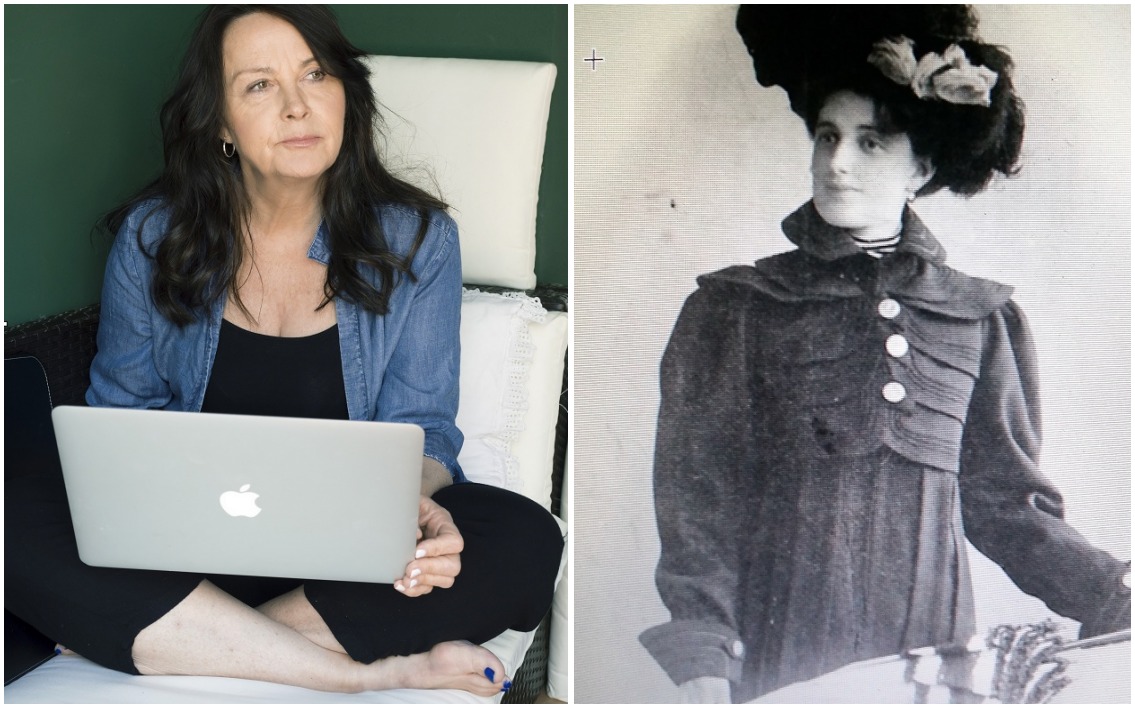
What are you working on right now?
I am working on a novel about the American Lincoln Brigade of volunteers who went to Spain in 1936 to fight alongside the resistance against General Franco’s fascist troops, who, backed up by Hitler and Mussolini, had initiated a military coup against the democratically elected government. The story is told through a twenty-four year old American woman who joins the Medical Unit that follows the International Brigades along the front.
Where can our readers discover more of your work or interact with you?
My website: www.susanaaikin.org
Twitter: @Susana_Aikin
Instagram: https://www.instagram.com/susanaaikin/
